
By your own admission, you’ve been busy all your life, but you’ve had paying jobs in very small spurts throughout your career. Looking back, how much of this outcome was directly influenced by your choices, and how much was it a result of forces beyond your control?
I feel it was both, actually. Quite often it was because of forces beyond my control. I just didn’t get any interesting work for years. People didn’t think I was worthy of being cast! But in a way, it turned out to be good for me because then I ended up doing television. That’s kind of the first paying job I really got. I did a TV show, titled ‘Idhar Udhar’, which aired in 1984-85, and was a sitcom that was quite progressive. I thought that I would be doing dramatic parts–that’s what one expects when they are young–and I got a comedy. I was completely unprepared but it was so exciting! We were all learning on the job. It was a wonderful introduction to comedy; it was still acting but in a completely different context.
When I started my career in the early ’80s, I would have done the kind of roles written for women–even the big dramatic roles that people like Shabana Azmi, Smita Patil did–but I didn’t get the chance. I got ‘Idhar Udhar’, which I feel changed me and my attitude towards my life and work. I was very lucky that, in the long run, my so-called career panned out quite extraordinarily.
Your persona has always been political and intellectual–far more intense than even that of your better half. Is this because you are inherently a more political person than creative?
It’s a tough distinction to make. I think everything is political. Work is always political and what we are trying to do is create some kind of art. But yes, it is political in a way as it’s a message that goes out to many people and conveys many meanings of the preoccupations that the society or the government in the country has. ‘Idhar Udhar’, ‘Tara’, ‘Filmi Chakkar’ were my first professional projects, and all of them were trying to explore situations and characters that were quite different from what I have seen in Hindi films. ‘Tara’ had women who took charge of their lives, made choices, and did things that were considered shocking or unacceptable. In ‘Idhar Udhar’, two young girls were living with a man, who was neither romantically involved with the two nor was even willing to. He was not even a brother figure; just a stranger who was with them as a paying guest. Still, there was no sense of ‘haww!’.
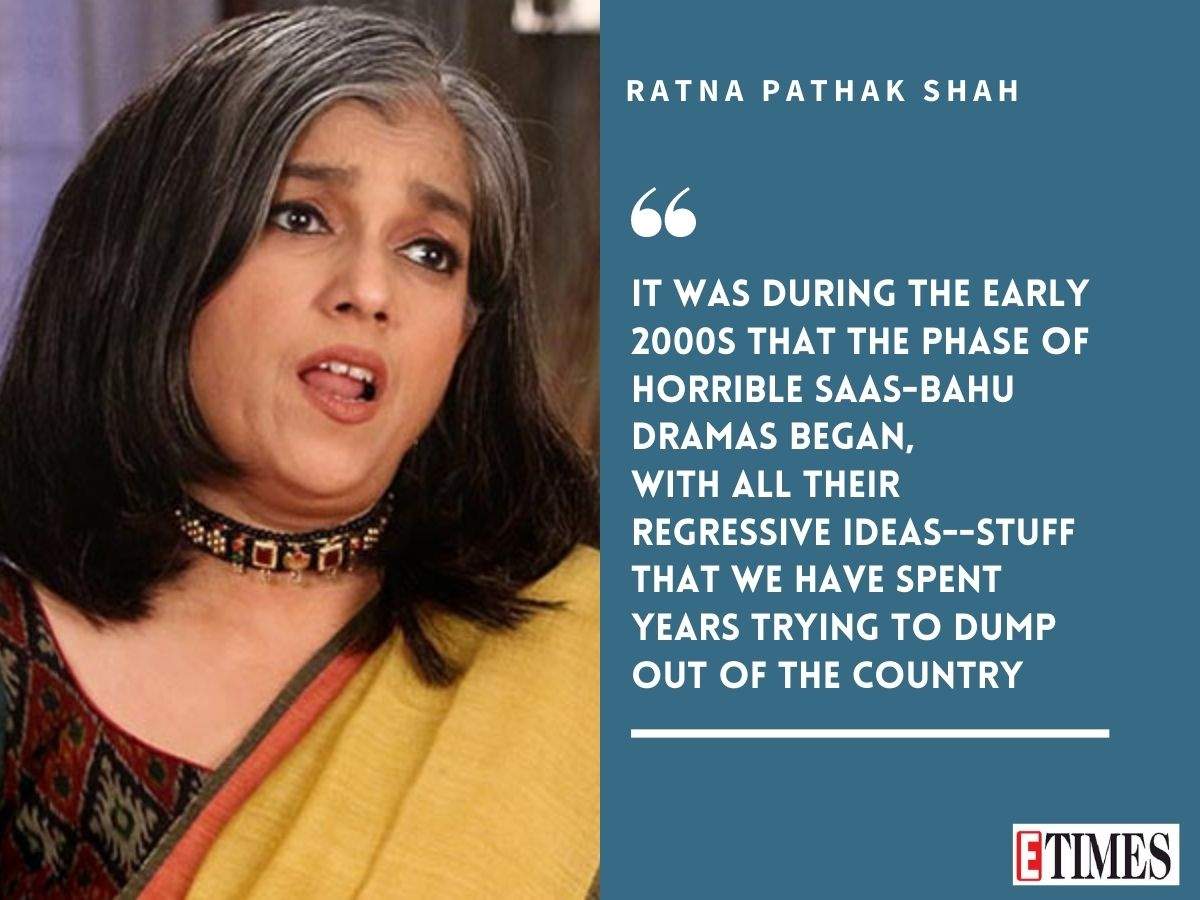
It was during the early 2000s that the phase of horrible saas-bahu dramas began, with all their regressive ideas–stuff that we have spent years trying to dump out of the country. If you see, in the late ’90s and early 2000s, you can see the intention to create ‘parampara’ in society all over again. The importance of caste was reinforced and communal relationships were looked down upon. This should have no space in the 21st century. So, how can you not be a political person? If you are making something that is consumed by millions in the country, how is that act not a political one? What choice do you have? How can you only be an artiste? I feel all art is political. The job of art is to disturb society, question things, to make people think. Of course, we are not doing that now; that’s another story.
Go on…
With the advent of OTT, suddenly we are being looked at very carefully, people are self-censoring in a way I didn’t think was possible. Sometimes I wonder whether I am in Islamic Iran or modern India. What kind of a society are we creating? It is really scary stuff that is happening around us; if we don’t talk about it and if we don’t speak up against it, we are not doing our job.
Has your no-nonsense approach ever intimidated those around you?
I guess it has (chuckles). Outspoken women are not appreciated in India, and probably all over the world. On the other hand, nobody, who has been close to me, has been intimidated. People, with whom I have worked, were not intimidated. It depends on the person interacting with me. It’s not my job to worry about them.
Comedy can be serious business. Most of your easily referenced work has fallen into that genre. Does it limit your prospects?
I don’t think of myself as a comic actor. Fortunately, I happened to be working at a time when stereotypical slots were not being enforced. There was a time when, if you wanted to be an actor, you had to decide whether you wanted to be the hero, heroine, villain, or comedian. And if you need to limit yourself by force, what a pity! A guy like Mehmood, who was such a wonderful actor and probably extremely skillful, never got a chance to do anything else. I have seen Amrish Puri on stage. His height is different from the kind of stuff he had to do. Writers and directors should know how to write parts that reflect people and not categories. You can’t have good drama or fiction if you put people in these little slots. It’s the result of lazy writing rather than anything else. We had really poor writers–people who just put together some rubbish and passed it off as a script. The kind of films that my poor husband did… my heart breaks to think of the pain he must have suffered due to those badly written, directed, and put-together stuff. But again that was all that was available; that was an actor’s life.
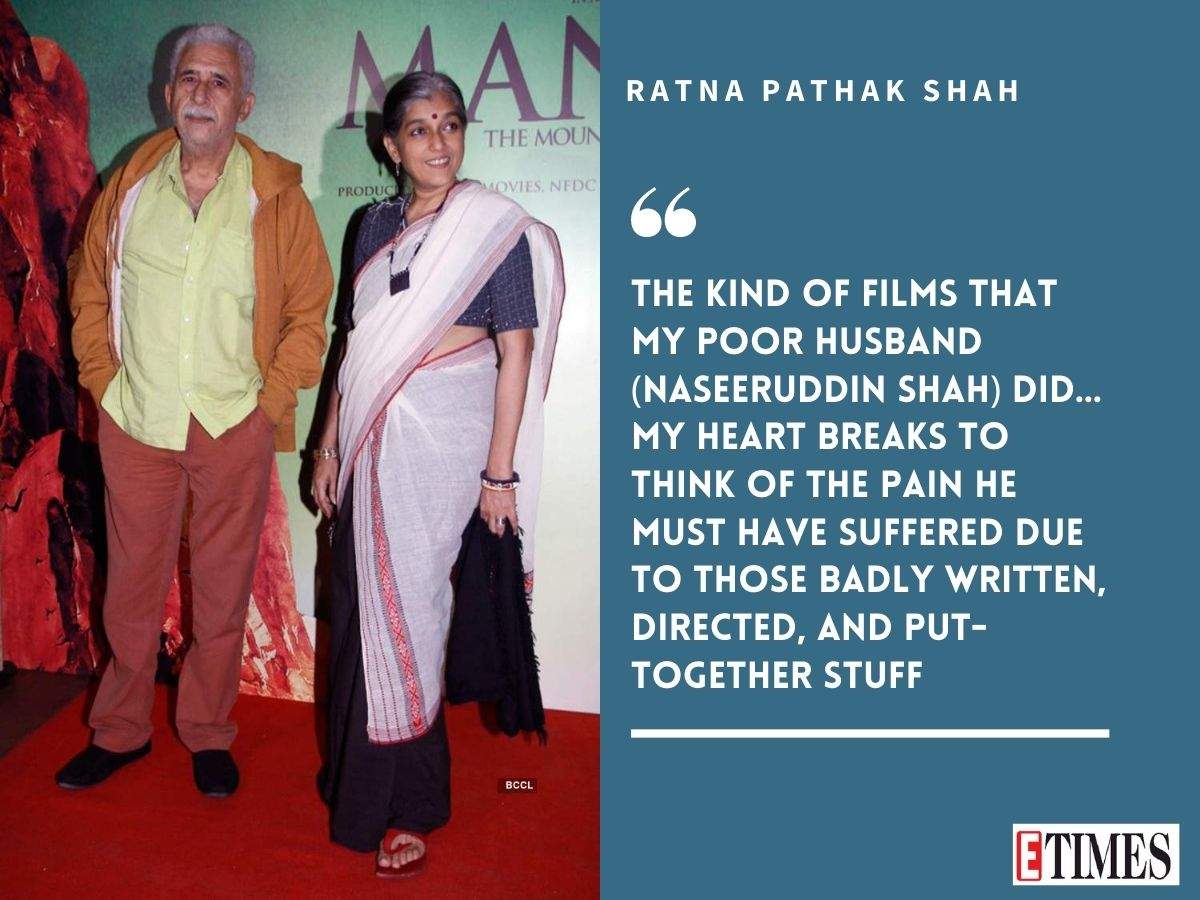
Sarabhai Vs Sarabhai has become part of pop culture. So much so, that decades after its original run, it’s still popular on the internet…
It was a good product–well written, well-produced, well-directed, very well-acted. The bulk of the credit goes to the writer; Aatish Kapadia’s view of the world that has stood the test of time. ‘Sarabhai vs Sarabhai’ was witty! But we were ahead of our times; when we first aired on Star One, in 2004, our TRP was 0.69. My own family, who were hooked on TV, didn’t watch it; they said they couldn’t connect to it. So, after a few episodes, the show was done with. It was much later, when the channel started playing the show on repeat, that people found out about it. And when we went online, the response was phenomenal. We discovered our audience was able to consume this kind of stuff too and didn’t need to be spoon-fed. We found a new, much younger audience. I feel gratified when people tell me the show helped them while they were in depression during the global recession of 2008, or recently, when they thanked us for a stress-free lockdown.
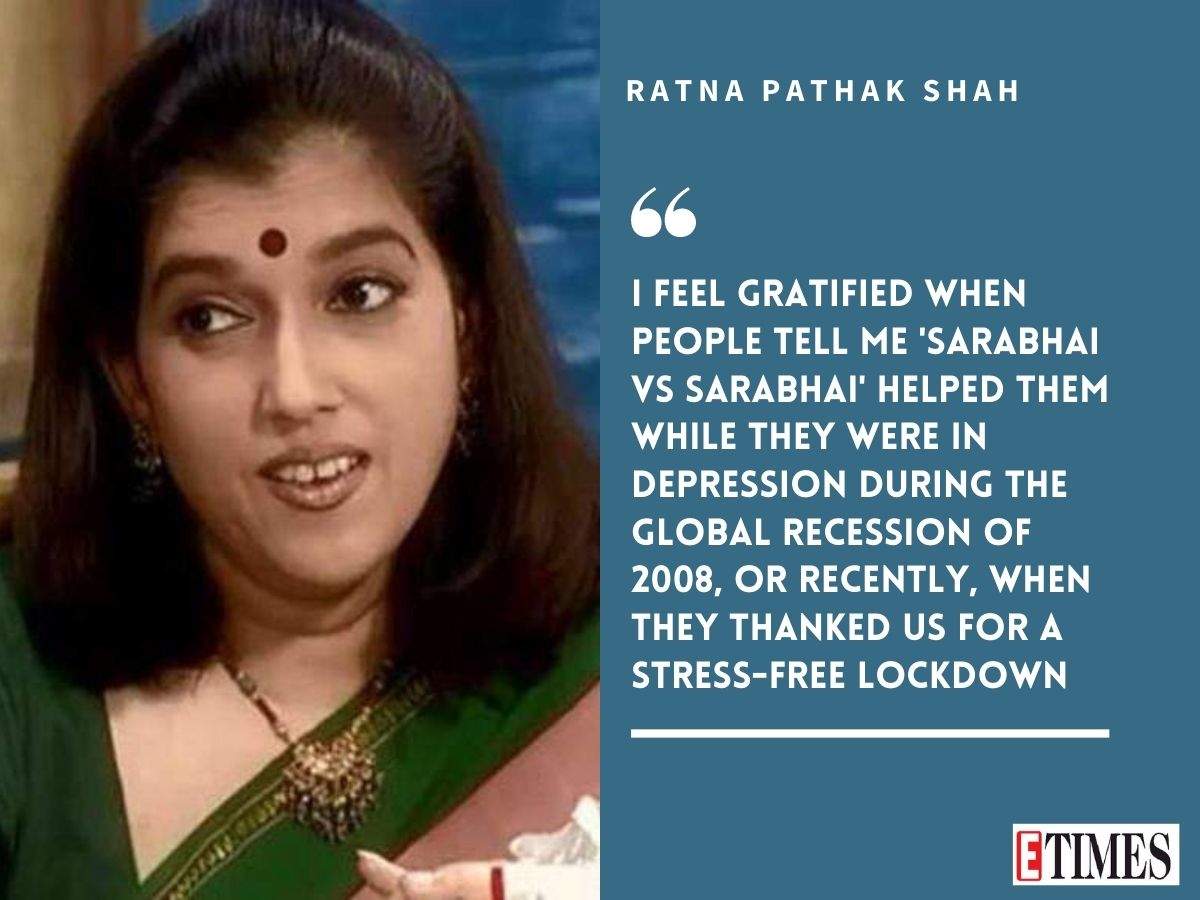
What did you want your sons Imaad and Vivaan to choose as their careers?
I have very little to do with it and rightly so. It’s tough to run your kid’s life or feel you need to have all the answers to prevent your kids from seeing the unhappy side of life. How would you grow up if you don’t face life with all its complexity–good, bad, different, horrible, boring? All life has to be experienced and savoured.
I don’t understand parents who say, “I want to give my child everything that I did not have”. I just wanted to say to these parents, “Are you crazy, idiots?. You became what you became because you didn’t have those things. That’s what gave you the desire, fire, and passion to do what you wanted to do. How would you have done if mummy and daddy would have provided everything for you? How would it help you in your growth? Why are you preventing your children from that experience?” When you give your child everything, he/she turns out to be very confused and depressed, as that child does not know how to grow in life, how to deal with life. Sh*t will come your way, no one can prevent that from happening. Imaad and Vivaan have minds of their own and are leading lives according to that. I don’t necessarily approve of everything they do and they don’t approve of everything that I do. So, that is equal.
Do you agree that Bollywood is finally focussing on female characters?
Yes, women get to do better parts than ever before. It carries and reflects in society around us. Though we are still dealing with a lack of opportunity, women are making their own ways in pretty hard conditions–managing both work and their household duties. I am very proud of them. I remember when I had joined the National School of Drama, I had a home to come to and a family that would support me. I didn’t have to pay my bills from day one, but there were so many other girls who had to. For example, Neena Gupta. She had entered the industry a few months before me and had a completely different experience. I was safe, Neena was not. She had to fight to make her own place in the world. I have a huge amount of respect for her and how she has managed her life today. I am very hopeful that the future looks bright for at least some of the girls I know.
Multiplexes and single screens, which had replaced performance theatre, are facing an uncertain future with the advent of OTT. Where do you see the future of the traditional theatre format?
The pandemic has really shaken up our lives, particularly in the theatre. The kind of theatre I do, which is not commercial, is not crowd-pleasing unlike Marathi or Bengali commercial theatres. It is a huge change for us. But don’t forget that we are still the lucky ones. What about the traditional performers all over the country? I don’t know how they are going to find livelihoods at this unfortunate juncture. But I think the life of a performer is still precious. During the lockdown, we have lost human contact. And the contact in the theatre, between the audience and the performer, between the audience and themselves and the performer and themselves, is irreplaceable. No one in the recorded format can give you that experience. That’s why when Prithvi theatre reopened in November last year, the audience was dying to come back. I remember when our performance took place, somebody exclaimed, ‘We are back in Prithvi’ and the audience applauded. I can’t express how heartwarming that experience was! We haven’t yet become a society that wants to get locked in a room and look at a screen. So, Inshallah, there will be a future for us!
How did you and Naseeruddin Shah come together?
We were friends, we were working together at a place and we were in contact and getting to know each other. At some point in time, we decided that we like each other enough to spend more time with each other. That’s how it happened, and fortunately, it has been good for us. It has been 40 plus years of togetherness.
What attracted you to him?
It’s entirely a lottery; we just got lucky!
We have heard about the restaurant story, where you had just Rs 400 and then, after ordering the food, you had to calculate the bill. One would assume that you must have not faced similar situations since…
(Chuckles) Money has never played an important role in our life and we never want it to. Like Goldilocks, we found a situation that was just right for us. Fortunately, Naseer minted enough money for us to survive when I was not able to contribute much financially. We didn’t go on expensive dates, we didn’t have huge amounts of money. We traveled as much as we wanted to travel and also were useful to others–I think that is what money can do for us. It’s wonderful that money did not happen too much for us. What does Bill Gates do with his money that I can’t do? Apart from buying some yacht? But I don’t want that damn yacht… so how does it matter? If my entire life is going to be spent calculating money, I think that would be a waste of a life. I am so relieved that I don’t have to think about money all the time–not how to earn it, and not to invest it. Whatever little I have, I find it hard enough to manage that investment. I would hate to have worried about it every morning. So, I am very happy where I am. I can’t be greedy and impoverished.
Your wedding ceremony was a very personal affair with only family and close ones. Will you prefer the same for your kids, too?
Yes, of course, we had a fantastic wedding. Ours was probably one of few marriages that I attended, where the bride and groom both had fun. We had a ball at our wedding! We went to the beach, swam and drank wine, and had a great time. There were no rituals and no rona dhona (crying). I remember when I left my mom’s place, we all were singing bidaai songs together. Naseer and I were also singing a whole lot of bidaai songs. So, of course, I want that for my kids too, but both of them are not showing any signs of marriage!
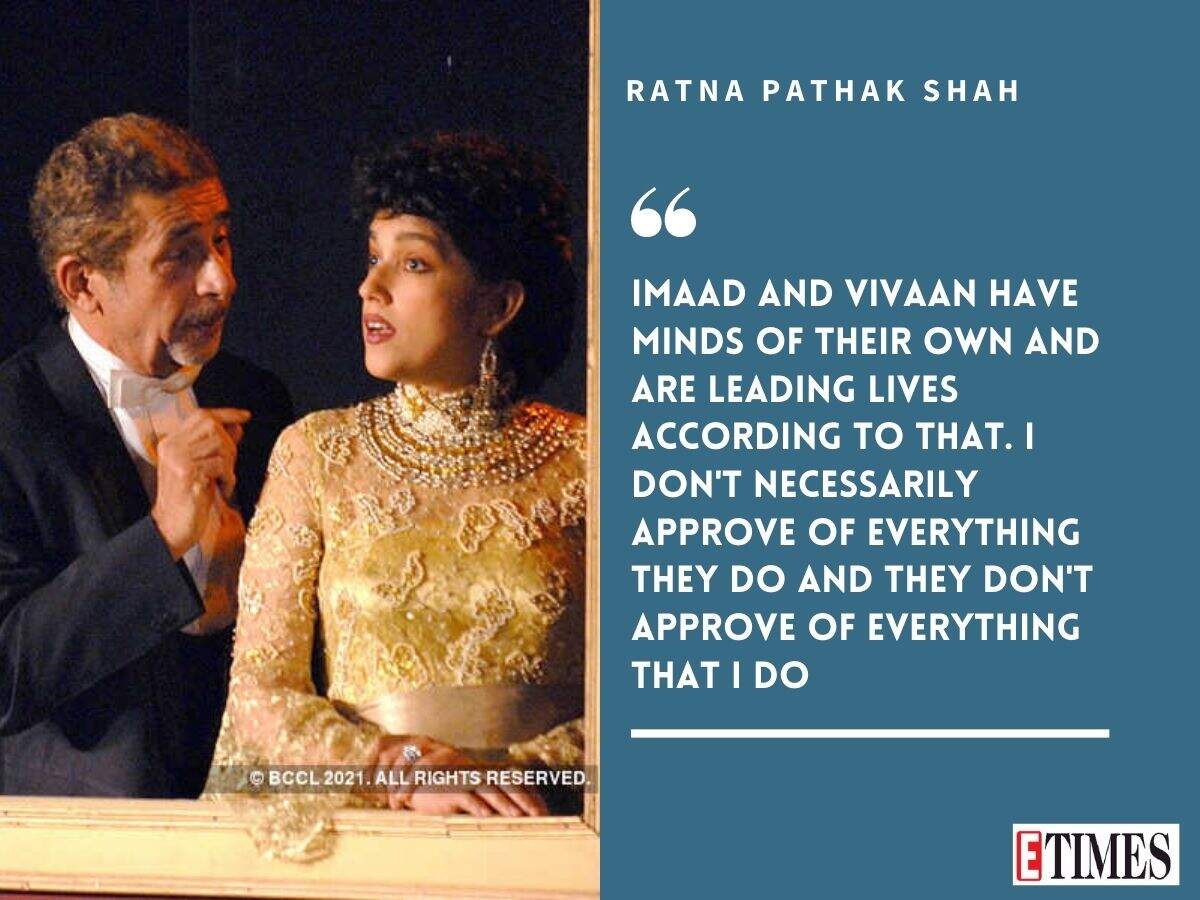
How do you react to compliments and comparisons with your mother? Do you consider her vocation an influence on your choice of a career?
Of course, I grew up hearing stories about my mother travelling all over the country, performing in key places. She travelled during the Bengal famine, performed on the back of a truck, and also in the fancy theatres in Bombay, and Delhi. She lived a life that gave her great joy and satisfaction. She lived a life that was constantly experimental. She pushed herself as a theatre artiste to directors; she wrote and directed her own stuff. She was an original. I am afraid Supriya and I are not quite as bold. Don’t forget that my mother was doing all these things when women were not even allowed to study or have careers. She and her older sister were about to get engaged at the age of 13-14 and get married off quickly thereafter, but they both fought, made their own choices, lived their own lives, and contributed a great deal to the world.
As I grew up, they had a great impact on me and Supriya. Both of us consider ourselves blessed that we have her as our mother. I can’t say that I agreed with all her ideas about acting as she did belong to a different generation but I know that she worked very hard; I saw that. When I was very young, she used to act in theatre mainly. And working in theatre is quite different from working in films, where you walk around on the sets and demand to know, ‘Mera room kaha hai?’ and ‘Mera costume kaha hai?’ and all that. Theatre doesn’t operate like that. That’s the most hateable thing and that’s where the great pleasure of theatre is. It’s very professional in that sense. I sat with her and she taught me a very useful lesson that whatever you get and whatever you want to get needs a lot of hardwork.
Aging is a natural process, so should one be wary of it or not be too bothered?
The only thing that we are certain of is the fact that we are going to die. Why do we want to live over and over again? Only if you are afraid of something like hell or you are looking forward to something like heaven, then death becomes an issue. I have no real concept of religion. Though I like the festivals, it is because of the fun and the food, getting together, meeting friends, family and dressing up. I never got into caste; I have never ever had to make a choice based on what my religion says. I have been brought up to believe that my choice is mine and I must exercise intelligence with compassion. The responsibility is mine and not of any priest, God, or book that can tell me how to live life. We are the only species that has been granted ‘Vivek buddhi’ (power of rationalisation). Why would I hand it over to somebody else?
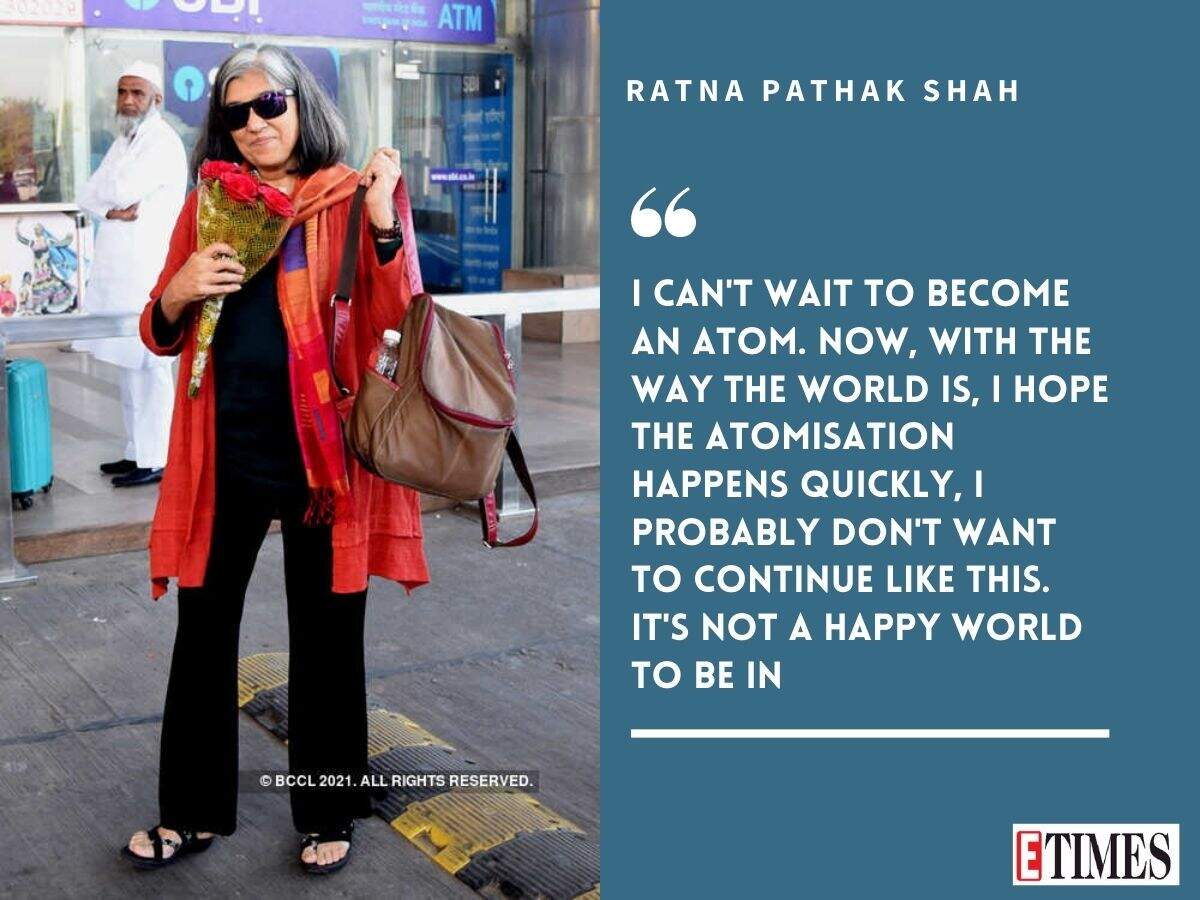
I went to a Parsi school and the most beautiful thing that I learned there was to be good, think good, say good words, do good deeds, and think good thoughts. That’s what matters to me. I feel sorry for people who are petrified of death. My aunt, Shanta Gandhi, whom I consider a great role model for myself, would say, “Finally, we all are going to be an atom”. I can’t wait to become an atom. Now, with the way the world is, I hope the atomisation happens quickly, I probably don’t want to continue like this. It’s not a happy world to be in.